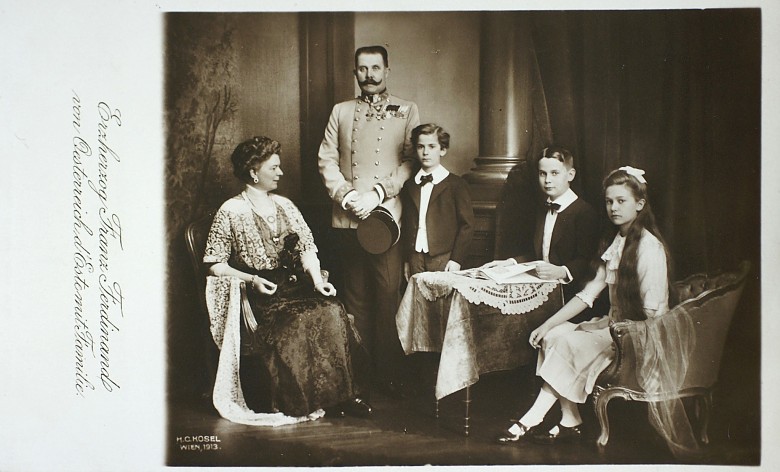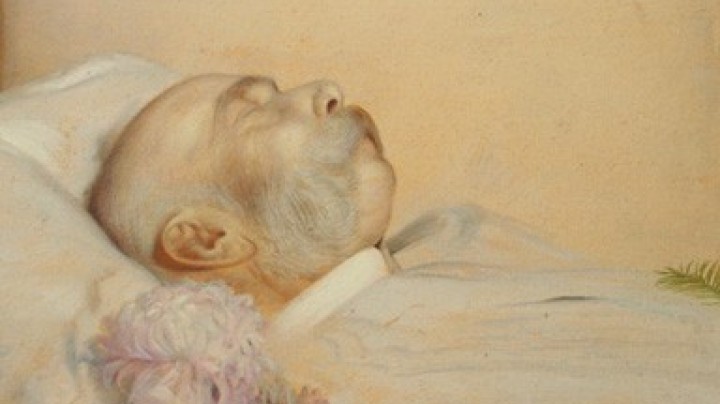Love follows its own laws … Franz Ferdinand’s marriage and offspring
Franz Ferdinand insisted on marrying Countess Sophie Chotek, the love of his life, against the emperor’s will.
Franz Ferdinand on the Habsburg marriage laws, quoted from Katrin Unterreiner: Die Habsburger. Mythos und Wahrheit, Wien / Graz / Klagenfurt 2011, S. 168When people like us care for someone, there is sure to be some little detail in their family tree that prohibits the marriage, and thus it is that in our family man and wife are related to each other twenty times over. The result is that half of the children are idiots and epileptics.
Although the countess came from the ancient Bohemian noble family of Chotek of Chotkov and Vojnin, according to the Habsburg nuptial laws she was not of equal birth to her husband since she did not belong to a sovereign dynasty.
This morganatic marriage was one of the major reasons for the poor relations between Franz Ferdinand and Emperor Franz Joseph. The archduke showed enormous tenacity in insisting on his marriage. It was only in 1900 that he was granted permission to marry, following lengthy negotiations which resulted in him being forced to give up his future children’s membership of the dynasty together with any associated rights. On the occasion of their marriage his wife Sophie was granted the title of Princess (from 1909 Duchess) of Hohenberg. The name was a reference to Gertrud von Hohenberg, the first wife of Rudolf I, the medieval progenitor of the dynasty.
Sophie was openly snubbed at the Viennese court, which grieved Franz Ferdinand deeply and only increased his aversion to Viennese court society. At public appearances it was always made quite clear to Sophie that the family regarded her as an unwanted outsider.
The union resulted in three children: Sofie (1901–1990), Max (1902–1964) and Ernst (1904–1954), who took their mother’s name of von Hohenberg.
Franz Ferdinand’s family life is reported to have been happy and harmonious. The family mainly lived on the archduke’s private estates in Bohemia (Konopiště, south of Prague, and Chlum in Southern Bohemia) and at Artstetten in Lower Austria.
After 1918 the Bohemian estates of the family were confiscated. Through an irony of history, Franz Ferdinand’s descendants were very definitely regarded as members of the former ruling dynasty by the authorities of the newly founded Republic of Czechoslovakia, despite the fact that Franz Ferdinand had had to relinquish membership of the Habsburg dynasty in the name of his children in 1900.
During the 1930s the two brothers Max and Ernst were outspoken representatives of the monarchist camp, supporting independence for Austria and opposing annexation by Germany. After the National Socialists seized power in 1938 they were interned in Dachau concentration camp for a time because of their views.
Direct descendants of Franz Ferdinand today live at Schloss Artstetten.













